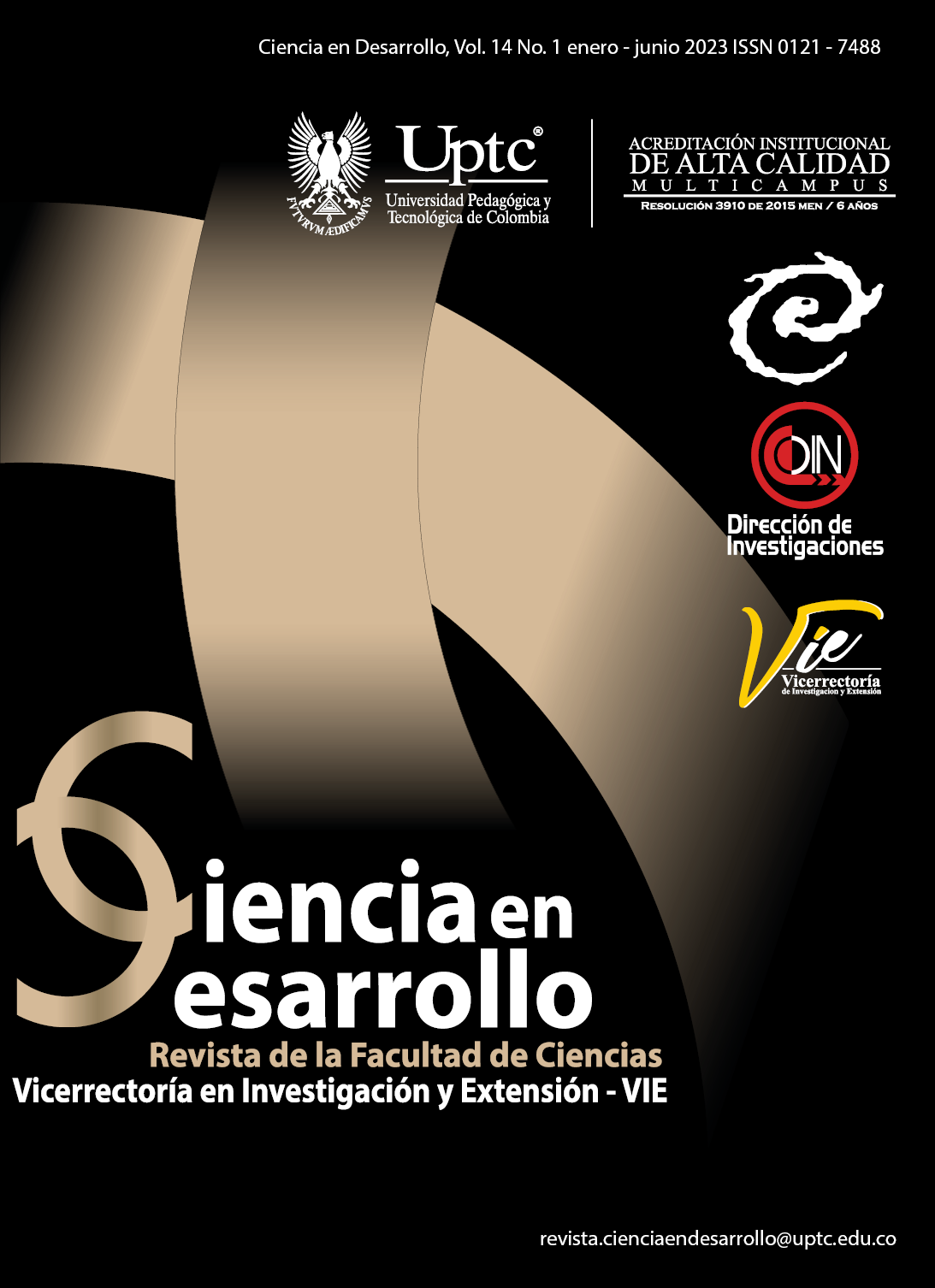Modelo matemático de una articulación tipo rotoide accionada por músculos artificiales

Resumen
En este trabajo se muestra el modelo matemático de un músculo-tendón usado para el diseño de una
articulación tipo rotoide accionada por músculos artificiales. El diseño asistido por computador (CAD)
permite evaluar y validar los parámetros más convenientes para su construcción; la integración del modelo
CAD con MATLAB nos permitió obtener los valores del rango del movimiento ±20◦ y un torque máximo
de 6,0 kg-cm ejercido sobre el eje de rotación por el prototipo.
Palabras clave
Articulación tipo rotoide, Modelo matemático, Músculos artificiales, Prototipo
Biografía del autor/a
Diego Alberto Bravo Montenegro
Profesor Titular Departamento de Física (Universidad del Cauca). Ingeniero Físico (2003), Esp. en Automatización Industrial (2007), Magíster en Ingeniería Automática (2012). Dr en Ciencias de la Electrónica (2016).
Citas
- H. Liu, Q. Cheng, J. Xiao, and L. Hao, “Data- driven adaptive integral terminal sliding mode control foruncertain sma actuators with input saturation and prescribedperformance”, ISA Transactions, 2021. DOI: https://doi.org/10.1016/j.isatra.2021.11.034
- F. Jin, C. Zhao, P. Xu, J. Xue, and F. Xia, “Nonlinear eccentric bending and buckling of laminated cantilever beams actuated by embedded pre-stretched sma wires”, Composite Structures, 2022. DOI: https://doi.org/10.1016/j.compstruct.2022.115211
- W. Liang, H. Liu, K. Wang, Z. Qian, L. Ren, and L. Ren, “Comparative study of robotic artificial actuators and biological muscle”, Advances in Mechanical Engineering, 2020. DOI: https://doi.org/10.1177/1687814020933409
- J.Zhang,J.Sheng,C.T.ONeill,C.J.Walsh,R. J. Wood, J.-H. Ryu, J. P. Desai, and M. C. Yip, “Robotic artificial muscles: Current progress
- and future perspectives”, Ieee Transactions on Robotics, vol. 35, 2019. DOI: https://doi.org/10.1109/TRO.2019.2892209
- S. M. Mirvakili and I. W. Hunter, “Artificial muscles: Mechanisms, applications, and challenges”, Advanced Materials, 2017. DOI: https://doi.org/10.1002/adma.201704407
- N. Simiriotis, M. Fragiadakis, J. Rouchon, and M. Braza, “Shape control and design of aeronautical configurations using shapemem- ory alloy actuators”, Computers and Structures, 2021. DOI: https://doi.org/10.1016/j.compstruc.2020.106434
- A. J. Theodore and P. L. Bishay, “Experimental analysis of fiber-reinforced laminated compos- ite plates with embedded sma wire actuators”, Composite Structures, 2022. DOI: https://doi.org/10.1016/j.compstruct.2022.115678
- N.A.Mansour,T.Jangc,H.Baekc,B.Shinb,B. Ryub, and Y. Kimb, “Compliant closed-chain rolling robot using modular unidirectional sma actuators”, Sensors and Actuators A: Physical, 2020. DOI: https://doi.org/10.1016/j.sna.2020.112024
- C. Rengifo and D. Bravo, “A control strategy for bipedal robots with musculotendon actuators in the knees”, Int J Dyn Control, Sept. 2022. DOI: https://doi.org/10.1007/s40435-022-01040-1
- K. B. Shelburne, M. R. Torry, and M. G. Pandy, “Muscle, ligament, and joint-contact forces at the knee during walking”, Medicine and science in sports and exercise, vol. 37, pp. 1948-1956, November 2005. DOI: https://doi.org/10.1249/01.mss.0000180404.86078.ff
- J. M. Winters and L. Stark, “Analysis of fundamental human movement patterns through the use of in-depth antagonistic muscle models”, IEEE Transactions on Biomedical Engineering, vol. BME-32, no. 10, pp. 826- 839, 1985. DOI: https://doi.org/10.1109/TBME.1985.325498
- C. F. Rengifo, Y. Aoustin, F. Plestan, and C. Chevallereau, “Distribution of forces between synergistics and antagonistics muscles using an optimization criterion depending on muscle contraction behaviour”, IEEE Transactions on Biomedical Engineering, vol. 132, no. 4, pp. 1-11, 2010. DOI: https://doi.org/10.1115/1.4001116
- J. Song, N. Xi, F. Xu, K. Jia, and F. Zou, “Servomotor modelling and control for safe robots”, in 2015 IEEE International Conference on Robotics and Biomimetics (ROBIO), pp. 1221-1226, 2015. DOI: https://doi.org/10.1109/ROBIO.2015.7418938
- R. Ambrose and R. Askew, “An experimental investigation of actuators for space robots”, in Proceedings of 1995 IEEE International Conference on Robotics and Automation, vol. 3, pp. 2625-2630, 1995.
- D. Meng, T. Shoepe, and G. Vejarano, “Accuracy improvement on the measurement of human-joint angles”, IEEE Journal of
- Biomedical and Health Informatics, vol. 20, no. 2, pp. 498-507, 2016. DOI: https://doi.org/10.1109/JBHI.2015.2394467
